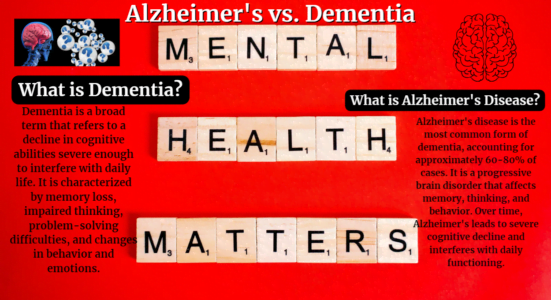24 FAQs (Frequently Asked Questions): Healthy Diet
1. Can I still enjoy my favorite foods while eating healthy?
Yes, you can still enjoy your favorite foods in moderation as part of a healthy diet. It’s all about balance and making conscious choices most of the time.
2. How long does it take to see results from eating a healthy diet?
The time it takes to see results can vary for each individual. However, you may start noticing positive changes in your energy levels, mood, and overall well-being within a few weeks of adopting a healthy eating plan.
3. Can a healthy diet help with weight loss?
Yes, a healthy diet can support weight loss when combined with regular physical activity. It focuses on nutrient-dense foods that promote satiety and provide the body with the necessary nutrients for optimal functioning.
4. Are there any specific foods I should include in a healthy diet?
A healthy diet should include a variety of nutrient-rich foods. Some examples include fruits, vegetables, whole grains, lean proteins, low-fat dairy or dairy alternatives, and healthy fats like avocados, nuts, and seeds. It’s important to choose whole foods and minimize processed or packaged foods high in added sugars, unhealthy fats, and sodium.
5. Can a healthy diet improve my energy levels?
Yes, a healthy diet can positively impact your energy levels. Nutrient-dense foods provide the necessary fuel for your body to function optimally. A balanced combination of carbohydrates, proteins, and healthy fats can help stabilize blood sugar levels and prevent energy crashes throughout the day.
6. Is it necessary to count calories on a healthy diet?
Counting calories is not always necessary for a healthy diet. Instead of focusing solely on calorie counting, it’s more beneficial to emphasize the quality of the foods you consume. Prioritizing whole, unprocessed foods and portion control can naturally support weight management and overall health.
7. Can a healthy diet prevent chronic diseases?
A healthy diet plays a significant role in reducing the risk of chronic diseases. Eating various nutrient-dense foods can support heart health, improve blood sugar control, lower the risk of obesity, and contribute to overall longevity and well-being.
8. How can I make healthy eating a long-term habit?
Making healthy eating a long-term habit requires consistency and sustainable changes. Start by setting achievable goals, gradually incorporating healthier choices into your diet, and finding enjoyment in nutritious foods. Surround yourself with a supportive environment and practice self-compassion along the way.
9. Are there any specific dietary guidelines I should follow?
While there are general dietary guidelines, it’s important to remember that everyone’s nutritional needs may vary. Consulting with a registered dietitian can provide personalized recommendations based on your individual health goals, preferences, and any specific dietary requirements.
10. What are some healthy options for eating out?
Healthy options for eating out include choosing restaurants with healthy menu options, requesting modifications to your meal, filling up on vegetables and salads, opting for lean protein sources, and being mindful of portion sizes.
11. How can I stay motivated to eat a healthy diet?
To stay motivated, set realistic and achievable goals, find your reasons for wanting to adopt a healthy diet, surround yourself with support, track your progress, and reward yourself for sticking to your healthy eating habits.
12. How can I ensure that I am getting all of the nutrients I need from my diet?
To ensure nutritional adequacy, eat a variety of foods from all food groups, pay attention to micronutrients, practice portion control, stay hydrated, and consider consulting a registered dietitian if needed.
13. How can I overcome cravings for unhealthy foods?
To overcome cravings, identify triggers and patterns, find healthy alternatives, practice mindful eating, distract yourself with other activities, and practice moderation by allowing occasional indulgences.
14. Can I still enjoy my favorite foods while eating healthy?
Yes, you can still enjoy your favorite foods in moderation as part of a healthy diet. It’s all about balance and making conscious choices most of the time.
15. How long does it take to see results from eating a healthy diet?
The time it takes to see results can vary for each individual. However, you may start noticing positive changes in your energy levels, mood, and overall well-being within a few weeks of adopting a healthy eating plan.
16. Can a healthy diet help with weight loss?
Yes, a healthy diet can support weight loss when combined with regular physical activity. It focuses on nutrient-dense foods that promote satiety and provide the body with the necessary nutrients for optimal functioning.
17. Are there any specific foods I should include in a healthy diet?
A healthy diet should include a variety of nutrient-rich foods such as fruits, vegetables, whole grains, lean proteins, low-fat dairy or dairy alternatives, and healthy fats like avocados, nuts, and seeds.
18. Can a healthy diet improve my energy levels?
Yes, a healthy diet can positively impact your energy levels. Nutrient-dense foods provide the necessary fuel for your body to function optimally.
19. Is it necessary to count calories on a healthy diet?
Counting calories is not always necessary for a healthy diet. Instead of focusing solely on calorie counting, it’s more beneficial to emphasize the quality of the foods you consume and practice portion control.
20. Can a healthy diet prevent chronic diseases?
A healthy diet plays a significant role in reducing the risk of chronic diseases. Eating various nutrient-dense foods can support heart health, improve blood sugar control, lower the risk of obesity, and contribute to overall longevity and well-being.
21. How can I make healthy eating a long-term habit
Making healthy eating a long-term habit requires consistency and sustainable changes. Start by setting achievable goals, gradually incorporating healthier choices into your diet, and finding enjoyment in nutritious foods. Surround yourself with a supportive environment and practice self-compassion.
22. Are there any specific dietary guidelines I should follow?
While there are general dietary guidelines, it’s important to remember that everyone’s nutritional needs may vary. Consulting with a registered dietitian can provide personalized recommendations based on your individual health goals, preferences, and any specific dietary requirements.
23. How can I create a healthy meal plan?
Creating a healthy meal plan involves incorporating a balance of fruits, vegetables, whole grains, lean proteins, and healthy fats. Consider portion sizes, meal frequency, and personal preferences. Plan your meals, include a variety of nutrients, and consider meal prepping to make healthy eating more convenient.
24. What are some healthy snack options?
Healthy snack options include fruits, vegetables with hummus or yogurt dip, nuts and seeds, Greek yogurt, whole grain crackers with nut butter, and homemade energy bars. Focus on snacks that are nutrient-dense and provide sustained energy.
For more information and tips on maintaining a healthy diet, visit optimalhealth.in.






